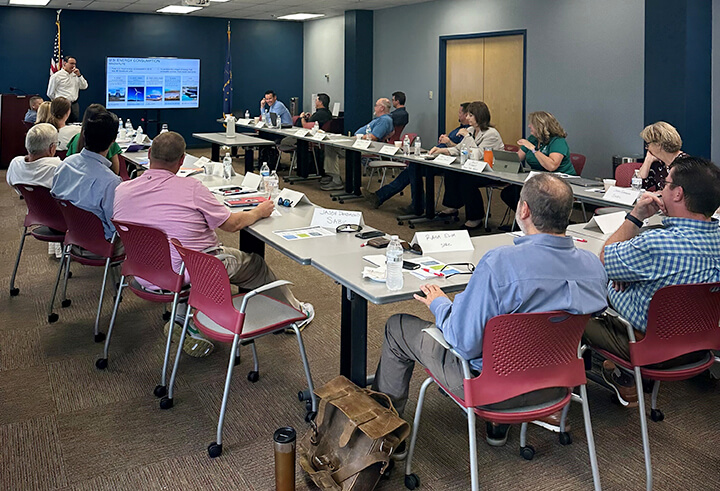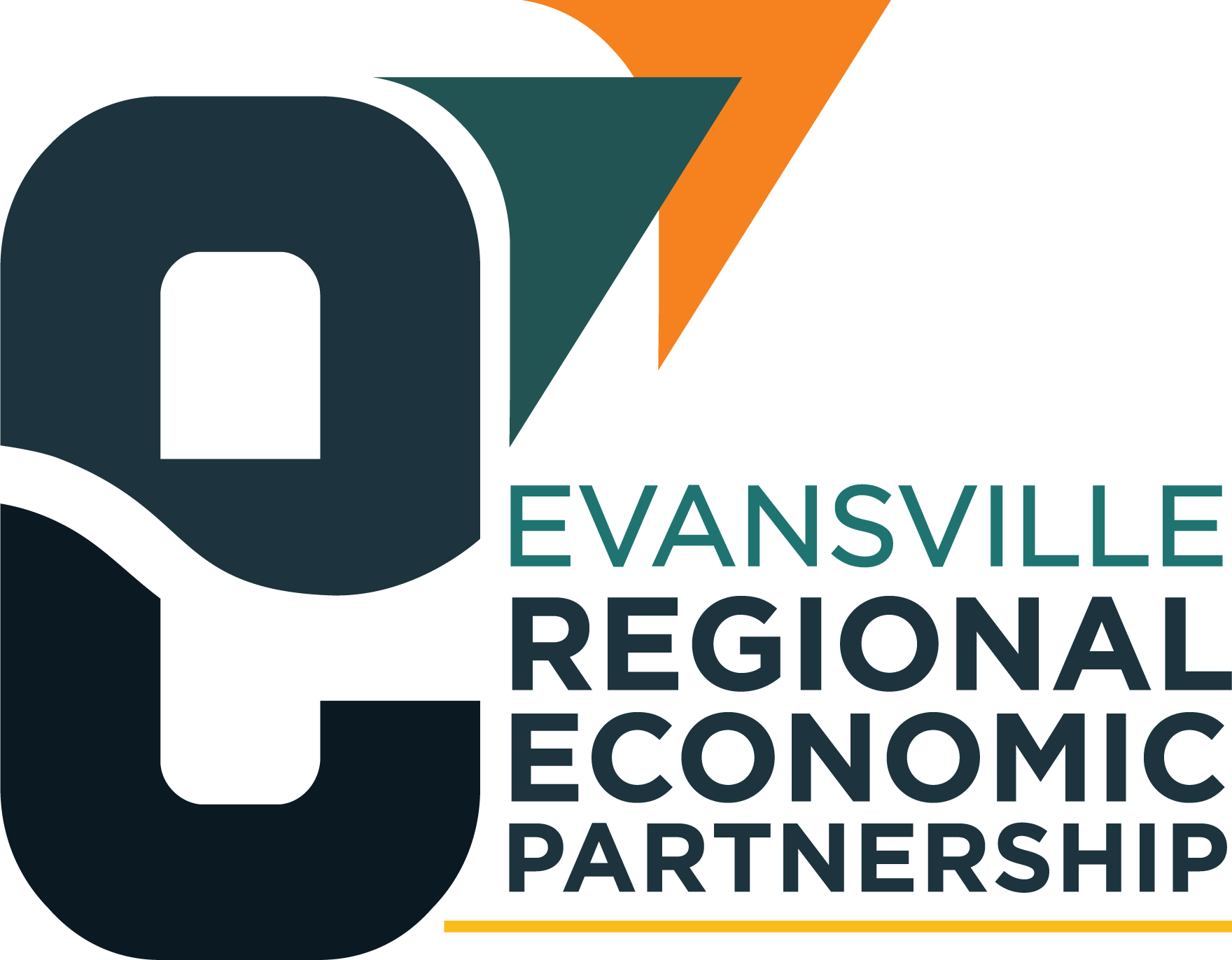Embracing Circular Economies, Sustainability, Carbon Neutrality, and Renewable Energy
In July the Evansville Regional Economic Partnership (E-REP) hosted the first sustainability workshop in plans of developing a more integrated, informed, and activated region in relation to industry-to-industry partnerships and industry-to-community mentorship. During the workshop industry partners shared strategic priorities in relative to their organizational goals, but also brainstormed about how the Evansville Region at large can embrace and leverage sustainability for positive economic growth.

The discussion included topics like…
- Circular Economies: A Paradigm Shift
Circular economies represent a fundamental shift away from the traditional linear model of “take, make, and dispose.” Instead, they embrace a restorative and regenerative approach that ensures resources remain in use for as long as possible, ultimately eliminating waste. By adopting circular economies, we can reduce pressure on finite resources, minimize environmental impacts, and create new economic opportunities through innovation, repair, and recycling.
“By engaging in circular economies new businesses can leverage and innovate on best use cases for an excess of 300 million tons of plastic that’s generate annually”- World Economic Forum
- Sustainability: Nurturing Balance
Sustainability as a cornerstone. Balancing economic, social, and environmental aspects ensures the well-being of current and future generations. A commitment to sustainable practices ensures that economic growth aligns with the protection and preservation of our natural ecosystems, cultural heritage, and community well-being.
“A 2019 study found that 73 percent of global consumers are willing to change their consumption habits to lessen their negative impact on the environment, and sustainable product sales have grown by nearly 20 percent since 2014”- Harvard Business School
- Carbon Neutrality: Paving the Way to Climate Resilience
Carbon neutrality plays a vital role in long-term climate resiliency. By striving for carbon neutrality, we are committed to reducing greenhouse gas emissions and offsetting any remaining emissions through sustainable practices such as afforestation, reforestation, and renewable energy adoption. Embracing carbon neutrality is an opportunity to lead the charge in building a climate resilient future.
“Companies often focus on the costs of reducing their carbon footprint. But new technologies can help turn the CO2 that they need to keep out of the atmosphere into ingredients for personal care products, jet fuel and can otherwise be used as a way to help generate revenue.”- EY
- Renewable Energy Transition: Powering Sustainable Growth
A transition from fossil fuels to renewable energy sources is essential for a sustainable future, but also inevitable from a viability perspective. Renewable energy, such as solar, wind, and hydro, presents an environmentally friendly and economically viable alternative. Investing in renewable energy not only reduces our carbon footprint but also fosters job creation, innovation, and energy independence, propelling our economies towards a greener and more prosperous tomorrow.
“There are just over 8 million jobs in renewable energy today. In 2021 and 2022, energy jobs grew faster than overall U.S. employment.”- Department of Energy
- Economic Opportunities and Resilience
The adoption of circular economies, sustainability practices, carbon neutrality, and renewable energy transition presents exciting economic opportunities. It stimulates entrepreneurship, drives research and development, and attracts investment. By positioning ourselves as pioneers in sustainability, we can attract businesses leading to stronger, more resilient economies. - Collaboration and Knowledge Sharing
To ensure the success of our collective vision, collaboration and knowledge sharing are paramount. As a region, we bring together diverse perspectives, expertise, and resources, strengthening our capacity to effect meaningful change. By fostering partnerships among businesses, governments, higher education, and communities, we magnify our impact and inspire others to join us in this transformative journey.
What’s next…
Using this workshop as a launching point for discussions and action around circular economies, sustainability, carbon neutrality, and renewable energy transition will help to facilitate a regional framework that can guide industries, communities, and residents.
When reflecting on the assets of our region we are fortunate to have both amazing businesses that are global leaders in sustainability practices and outcomes to share in a community of practice, but we also have natural assets such as the Ohio River that offers meaningful opportunities to how we redefine sustainability for the Evansville Region. E-REP is excited for what this discussion can mean for the region how it can be fostered to support a thriving workforce, connected regional economy, and improve the lives of current and future residents.
